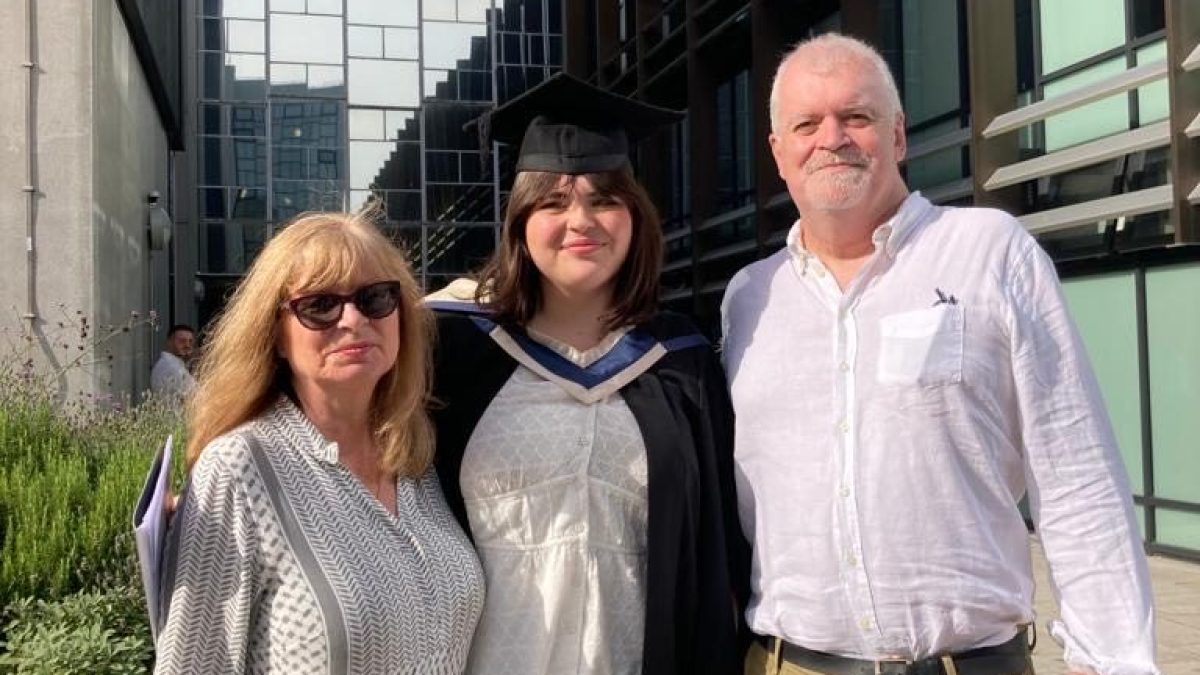Ciara Fagan is living with her parents, who still work, and is saving for her own home – which means she cannot afford to save for retirement at the moment
Ciara Fagan has always dreamed of retiring early and making the most of her life, but despite having a good job, she cannot afford to contribute to her pension.
The 25-year-old financial crime analyst from Bath said she wants to retire “as soon as possible” and go travelling, but in reality, she is not sure that she will ever have enough money to do so.
“I feel as though there has been a bit of a generational shift among Gen Z where we are working to live rather than living to work, and I want to retire early to enjoy my life and travel,” she told The i Paper.
“But, the only pension contributions I’ve made are the ones I’ve made through my work, and I’m not able to make any contributions myself at the moment because I can’t afford to, so I do not see how that will ever be a possibility.”
Ciara lives at home with her parents, Kim, 66 and Brendan, 65, who are both still working full-time in recruitment and IT, respectively, and they have no plans to retire as they do not have enough saved to live comfortably.
“Both my parents are receiving their state pensions this year, but, despite saving for the past 40 or so years, neither are able to properly retire, so what chance will I have?” Ciara said.
“I feel as though the future for young people is quite bleak, we are entering the world during the skyrocketing cost of living and stagnant wages.
“As a 25-year-old, still living at home, my financial goals are focused on moving out and owning a property, so it feels unobtainable to try to also save for my retirement.”
It comes as the Government has revived its Pensions Commission this week to examine why future pensioners are on track to be poorer than today’s.
The commission has found that retirees in 2050 are on course to receive £800 – or 8 per cent – less private pension income than those retiring today, while nearly 15 million people are under-saving for retirement.
The problem appears to be getting worse by the year, with the number of people under-saving jumping from 12.5 million in 2023 to 14.6 million as of this year.
There are a number of reasons for this, including that more people will be living off defined contribution pension schemes (where you build up a pot of money) rather than getting guaranteed incomes from defined benefit schemes, which are typically more generous.
With the cost of living rising dramatically over the past few years, many people are also prioritising other expenses over saving into their pensions, meaning they will have less to live on later in life.
Pensioners currently need an income of around £43,900 a year to have a “comfortable” retirement, according to the Pension and Lifetime Saving Association’s Retirement Living Standards.
With the full new state pension paying just under £12,000, that leaves a significant shortfall that would need to be covered by other retirement savings.
Experts are concerned that young people in particular are not prioritising saving for retirement.
Recent research by Scottish Widows found that a quarter of young people like Ciara are prioritising building up emergency savings over saving into their pensions, with 13 per cent prioritising housing deposits.
Meanwhile, a survey by Standard Life this month found a quarter of Gen Z are not prioritising saving for retirement as they are counting on receiving some inheritance in later life.
“Young people do want to work and contribute, but it feels a bit pointless when we can barely afford rent, so we are focusing less on work and more on things that fulfil us now,” Ciara said.
